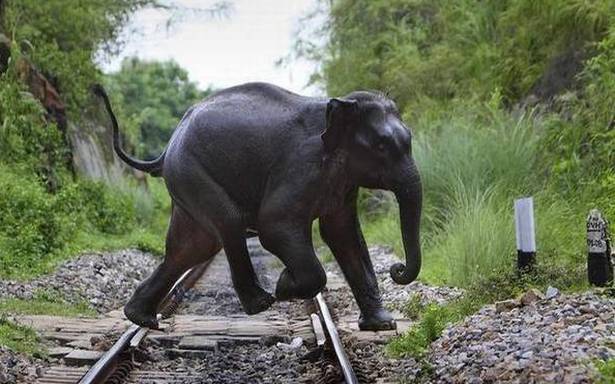Harvesting forest products from April to May, and scarcity of fodder and water for animals, are among chief causes
Human deaths increase over human-elephant encounters in Odisha during the summer, environmental pressure group Wildlife Society of Orissa (WSO) said here on Thursday.
WSO analysed data on humans trampled by elephants and the incidents of encounters between villagers and elephants in Odisha in the past four years.
“Encounters with elephants see a sharp rise during the summer as elephants feed mainly on fruits due to the shortage of fodder and water in the forests,” said WSO’s Biswajit Mohanty.
The WSO says 527 persons died and 442 sustained injures in elephant attacks from April 2017 to April 2021. Of them, 117 (22-23%) deaths took place in the months of April, May and June.
“This happens because people and elephants come face to face frequently when Non Timber Forest Products (NTFP) like mahua, mango, jackfruit, bael fruit, kaitha (wood apple) and cashew are harvested,” said Biswajit Mohanty of WSO.
With elephants found close to orchards and fruiting trees, they become a constant threat to humans who venture close to them, says WSO study.
“This is also the time when kendu leaves are collected by lakhs of tribal women for their livelihood. During summer, elephants also raid villages for stored food grains and liquor,” the study finds.
Alleging that Odisha’s Forest Department had done precious little to contain the rise in human-elephant conflict, Mr. Mohanty said, “The alarming casualty figures, especially during summer, shows that Odisha’s control over human-elephant conflict is dismal though crores of rupees are being spent on mitigation measures.”
The WSO has sought intervention from the Centre’s Project Elephant to reduce human deaths. It has also requested the wildlife wing of the State Forest Department to monitor the awareness drives in high conflict divisions such as Angul, Dhenkanal, Athagarh, Rairakhol, Sambalpur, Athamalik, Keonjhar and Deogarh.
“Fatal encounters with elephants during summer can be easily reduced if locals are cautioned and certain steps are taken. Such repeated human kills can lead to panic reactions and animosity towards elephants. Irate crowds may also react violently to the elephants as well as department staff, and resort to public agitation,” Mr. Mohanty pointed out.
Source: Read Full Article

